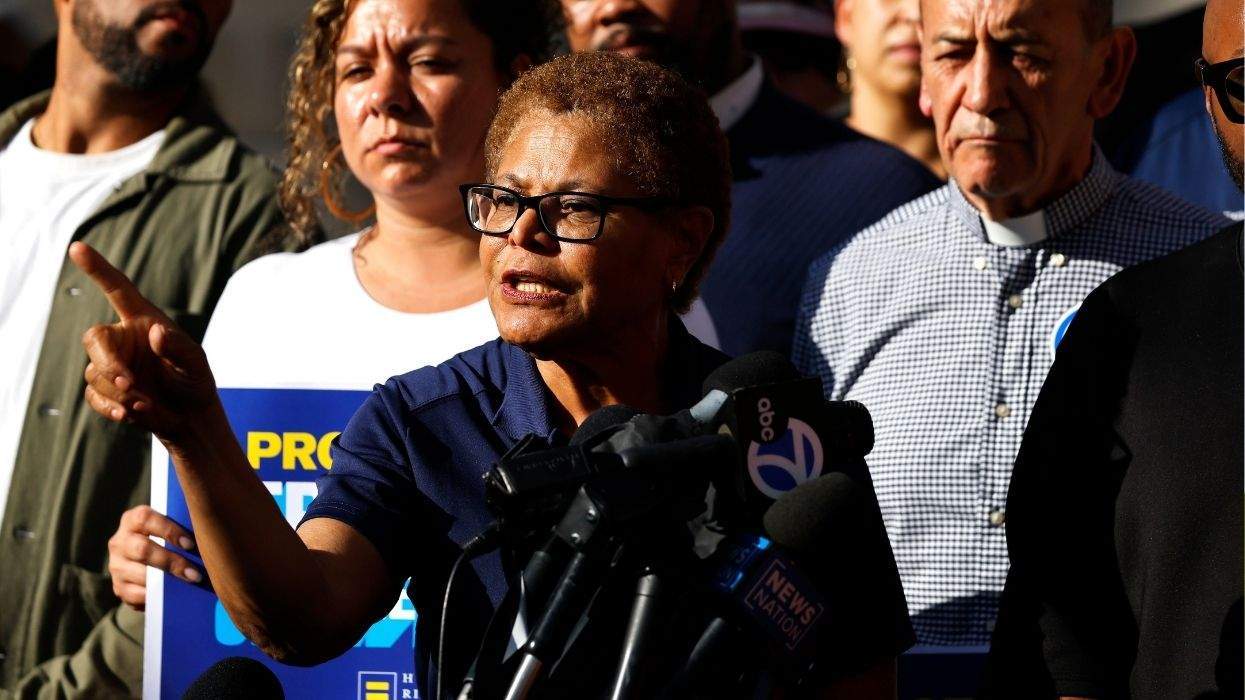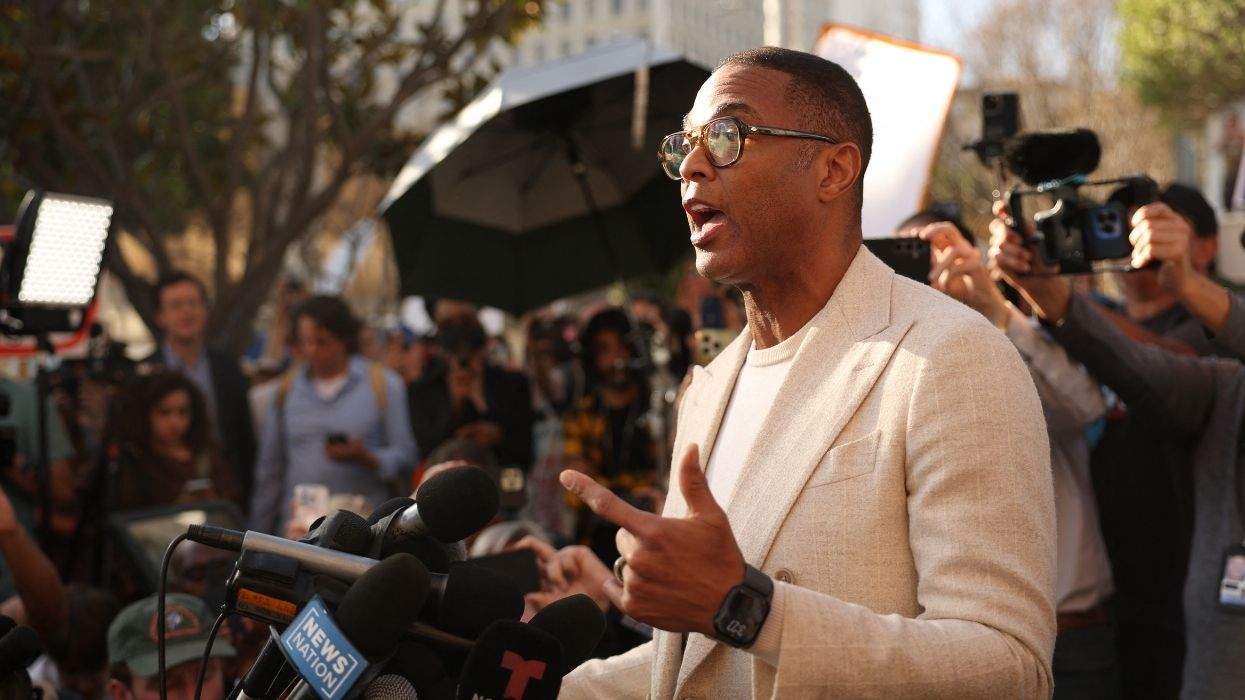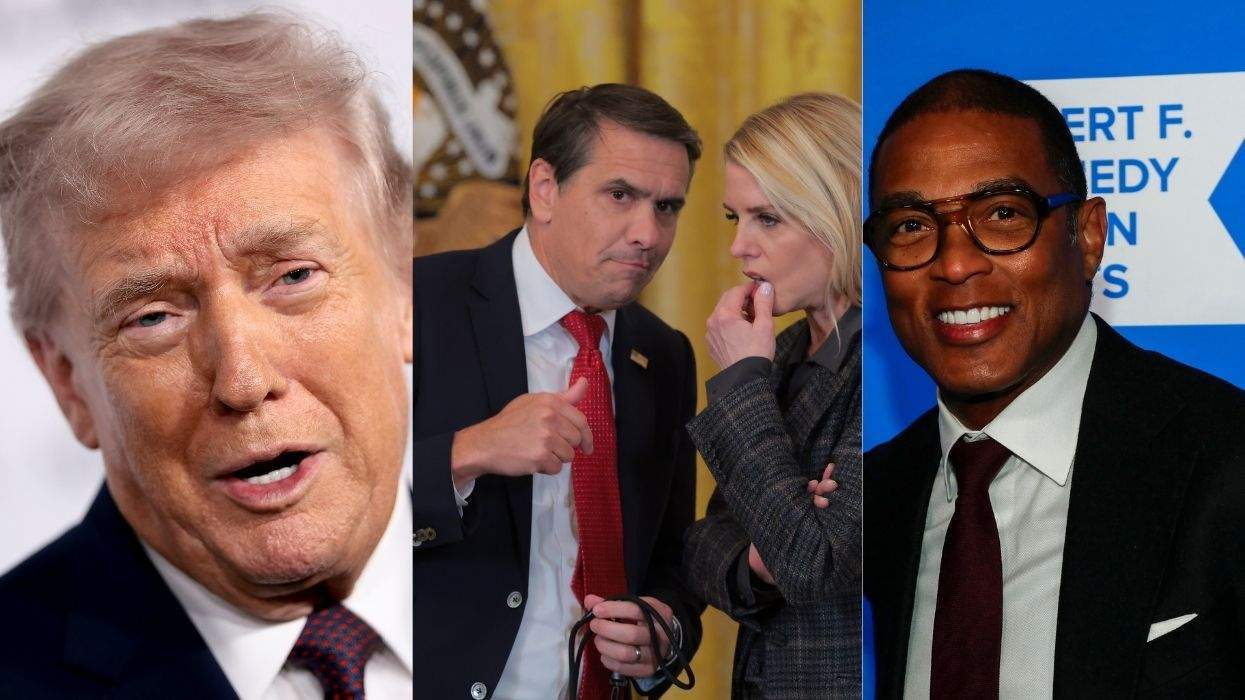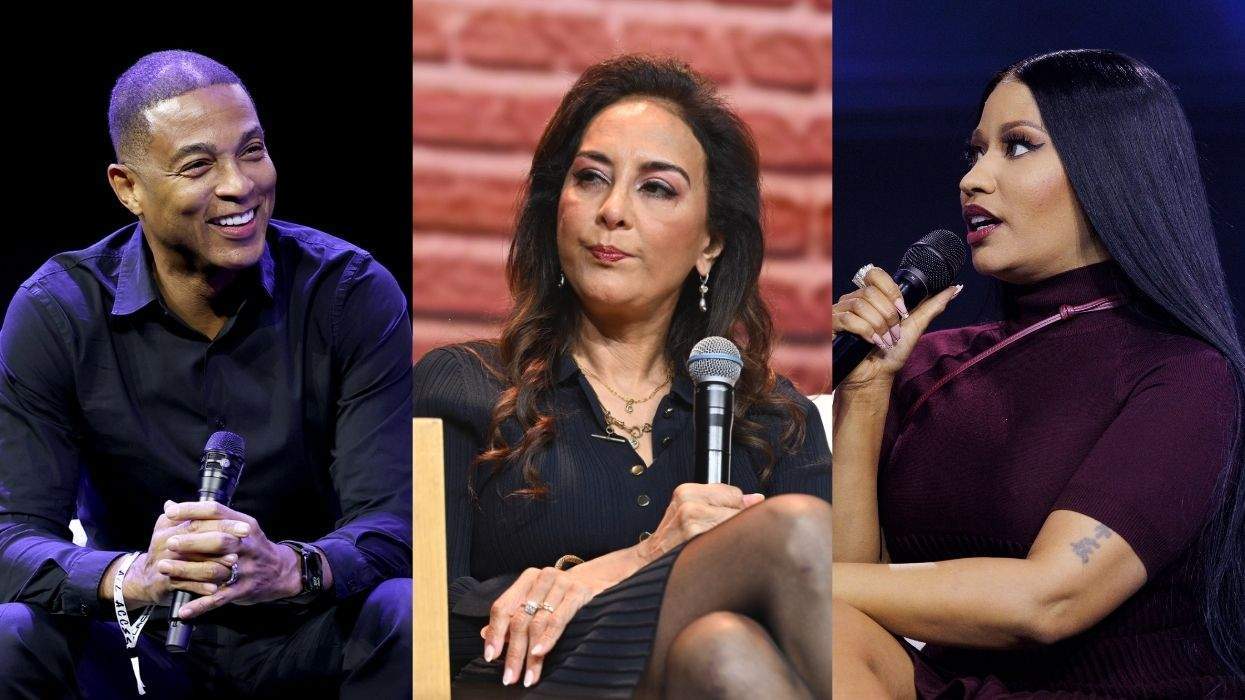Questioning youth seeking information on LGBT life on YouTube this Pride month might instead find advertisements from hateful organizations labeling their feelings as sinful and unacceptable.
YouTube creators -- whose channels often help individuals through the coming out process -- are reporting an increasing number of advertisements preceding their videos that promote an opposite agenda, one that labels gay and transgender people as immoral.
Specifically, users were greeted by political advertising from the Alliance Defending Freedom, a group the Southern Poverty Law Center lists as an extremist anti-LGBT hate group, or one from the FIRE School of Ministry, in which a reverend cites scripture labeling homosexuality an abomination.
Chase Ross, a trans YouTuber whose channel upperChase1 caters to the transgender community and its allies, said he first saw an anti-LGBT advertisement connected to one of his videos a few months ago but initially thought little of it.
"I just laughed it off and thought it was a mistake but thought it was funny that an anti-LGBT organization was giving LGBT creators money without even knowing," Ross says. "Then, a couple of days ago, someone tweeted me a screenshot showing me an anti-LGBT ad on my video and others started to tweet saying they see those ads all the time. That's when we all realized that so many LGBT creators were getting these ads."
The news of the homophobic promotions spread quickly through the YouTube community, where a number of channels started recieving reports of antigay marketing. Pushback came loudly.
Gay YouTuber Elijah Daniel, who records music videos as Lil Phag, snapped publicly at the video sharing service for allowing the content to run together. "How fucking dare you @YouTube? you restrict creators beyond belief with what we can have ads on, but don't screen ads like this before going live? and let them run on LGBT channels? for days? during pride month? lmao fuck you," he wrote.
So how does the content get paired with content bearing such an opposite agenda in the first place?
New Systems, New Bugs
YouTube is turning responsibility back on the creators. Spokespeople say creators can block certain advertisements from appearing with their content, and that they are reaching out directly to as many people as possible to explain the process. While the service has come under fire in the past for monetization of hate speech, they say the ads in question don't go so far as to violate YouTube's standards.
"We have policies against ads on YouTube that incite hatred or promote discrimination, and all ads that run on the platform have to comply with these policies. Even when an ad does not violate our policies, we understand that creators may not want ads from certain advertisers appearing on their videos," reads a statement provided to The Advocate. "That's why we give creators the ability to block ads from an advertiser in their AdSense account. We also give creators the option to block certain categories of ads if they choose. In the meantime, we are looking at ways to improve our policies going forward."
Incidentally, at least one creator of homophobic content coming under scrutiny said he never expected material to land in front of LGBT audiences. Rev. Michael Brown, of the FIRE School of Ministry, wrote in The Christian Post his organization intended to promote the video "Can You Be Gay and Christian" to a religious audience. "Our intended audience was primarily the conservative Christian community, because of which the ad words we used were Faith, Beliefs, Bible, Christian, Christianity, Family, Gay, God, Homosexual, Marriage," he wrote. But apparently that landed the video in front of Lil Phag videos, as well.
The video, a six-and-a-half minute talk mixed with cartoon animation of Bible figures, calls homosexuality sinful, suggests Jesus would disapprove of same-sex marriage and claims God won't condone gay sex even if engaged in monogamously. He writes the video was the first his organization ever paid to promote as advertising, but by putting it in front of a hostile audience, that actually earned the video more dislike marks on YouTube than ever experienced before. Brown wrote that he understands LGBT frustration at the videos and why people feel they are "an invasion of their safe space (or worse)," but also that if content offends "so be it."
Then there's advertisements for the Alliance Defending Freedom. The anti-LGBT groups advertisement in question focuses on so-called "religious freedom" laws, telling the story of a florist who doesn't want to sell flowers for a same-sex wedding. But the organization has a history of supporting deplorable causes. Heidi Beirich, director of the Southern Poverty Law Center's Intelligence Project, says the group's rhetoric internationally has been "as hateful as it gets." The organization has defended state-sanctioned sterilization of trans people and provided legal support (unsuccessfully) to keep gay sex a crime punishable with extended prison sentences in Belize. In other words, not a group LGBT users want to thank for their sponsorship.
Officials at YouTube say they do take the current concerns from LGBT users seriously. A spokesman concedes that finding a way to make sure content isn't unfairly demonetized, which has also been a particular problem for LGBT YouTubers, while also making sure unsavory ads don't appear on channels that don't want the association has been especially "vexing."
Thinking of the Youth
Meanwhile, YouTubers say their greatest concern remains users who come to LGBT channels looking to better understand themselves but instead get immediately hit with videos calling them sinners. YouTube long boasted a reputation as a safe haven for those in need of a community they couldn't find so easily IRL.
"My greatest concern is that I have a lot of viewers questioning and unsure about their sexuality," says Amanda Holland, whose channel Girl Ship TV promises content for queer women by queer women. "A lot of viewers in towns or countries where homosexuality is not accepted so for them to see such a hateful message before one of my videos, it could possibly make them doubt themselves and who they truly are at a vulnerable time when they are coming to my videos for support."
That the issue could happen when LGBT YouTubers have struggled against Restricted Mode filters and sweeping policies letting advertisers opt out of "controversial" content including LGBT rights videos only amps up emotion. Bisexual YouTuber Dodie Clark vented those frustrations publicly. "How the actual fuck is YouTube automatically branding anything LGBTQ+ not suitable for advertising and yet allowing anti-gay (ANTI GAY?!! what is this the 1940s?!) adverts on our videos?!," she wrote on Twitter.
Ross says he had no idea before YouTube released its response to the controversy that you could remove ad categories, and noted that major YouTubers like Hank Green have noted the tools to do so are both obscure and difficult to use. But what's most offensive to Ross is that YouTube continues to make money off this advertising while placing the onus on creators to flag content as too offensive to associate with their material.
"YouTube prides itself on being super inclusive and LGBT-friendly, yet they are still accepting money from them [extremist groups]. I understand having opposing views, but this is hate speech," Ross says. "I also really don't like that these organizations are probably targeting the viewers of LGBT content because there might be people questioning their sexuality or gender identity. And then they go on these videos that they think will be supportive and see these horrible anti-LGBT ads.
"This is a vulnerable population and these organizations are taking advantage of it."















Charlie Kirk DID say stoning gay people was the 'perfect law' — and these other heinous quotes
These are some of his worst comments about LGBTQ+ people made by Charlie Kirk.